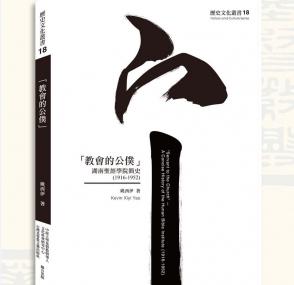Dr. Kevin Xiyi Yao’s new book The Hunan Bible Institute: A Stronghold of Fundamentalist Bible Training in China, 1916—1952 was released in Taiwan last month, introducing a history of the Hunan Bible Institute interwoven with the history of the fundamentalist movement in the early 20th century in China.
The Hunan Bible Institute (HBI), established in 1916 and closed in 1952, witnessed an important and turbulent era in Chinese Protestant Christianity. In terms of the historical environment, HBI saw various revolutions, campaigns, movements, wars, and polity changes. When it came to church development, it was a time of growing in maturity and independence, in which Chinese churches expanded ministries in mission, education, and medical care.
As a key fundamentalist institution in China, “HBI exerted considerable influence on the formation of conservative Protestant Christianity in China, by training church leaders and providing a fundamentalist ministry platform”, shared Dr. Yao, associate professor of World Christianity and Asian Studies at Gordon-Conwell Theological Seminary.
With its seven chapters, the Chinese book reveals the historical background, founding, development and expansion, and ministries of HBI, important Chinese ministry leaders involved, as well as its organizational changes since the time of the War of Resistance against Japanese Aggression, and under the government of the People’s Republic. Particularly, it examines a time of multiple tensions, between fundamentalism and liberalism, between HBI and the Bible Institute of Los Angeles (which partially funded and supervised HBI), as well as between the Chinese Church’s independence and the foreign missions’ control.
Kevin Xiyi Yao is also the author of The Fundamentalist Movement among the Protestant Missionaries in China, 1920-1937 (2003) and The Protestant Pacifism in China (2008).
- Translated by Grace Song












